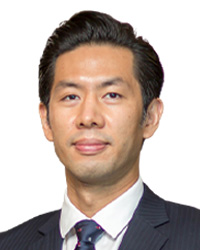Employee share option plans are incentive programmes in which executives and other employees are granted derivatives or shares in a company, or its parent, with the aim of rewarding their past performance, encouraging future commitment and attracting new talent.
Grasping the basics
Under such a plan, the company often grants share options that can be exercised when certain conditions are fulfilled. When exercising options, an employee may obtain the company’s shares by paying an exercise price, which is specified when the grant is made.
The grant may also take the form of stock that is given to the employee on a conditional basis (commonly known as restricted shares) and the employee may or may not be required to pay a fixed price for them.

Managing Partner
LC Lawyers
Another approach is a shadow plan, where the company pays out cash bonuses to employees. The amounts awarded in such grants are typically based on how well the company performs from the time they are awarded, such as the increase in profitability or, in the case of a publicly listed company, the gain in its share price.
The terms of the plan are tailor-made based on the company’s own human resources strategies, and usually set out the form of the incentive, how the plan is to be administered, the eligibility of grantees, any limit of grant to an individual, circumstances that unvested grants will lapse, and clawback mechanisms (e.g. if the employee resigns or is dismissed by the employer).
Subject to the terms of the plan, the company may stipulate vesting conditions for individual employees (e.g. service period, key performance indicators, the company’s financial performance).
An employee may make a profit equivalent to the difference between the price they have to pay and the market price or fair value of the company’s shares when the vesting conditions are fulfilled. On the company’s side, share option plans are a useful tool to reward and motivate employees by granting them equity interests to share in the future growth of the company.
Such plans are also seen as an alternative way to incentivise key people on the company’s path to an IPO. At that stage, the employee’s return from a grant can be substantial, while from the company’s point of view, it avoids the need to pay high salaries before the IPO is completed – a stage of development when most companies prefer to hold onto cash.
There is no universal rule on how large the grant pool should be – unless the company is listed and must follow regulatory requirements. Depending on factors such as sector, size of the company, types of talent to be attracted and management culture, companies are willing to offer between 5% and 20% of total share capital.
Company and securities laws

Associate
LC Lawyers
All share option plans involving grants in Hong Kong, whether by a local or overseas company, are subject to Hong Kong company and securities laws, including the Companies (Winding Up and Miscellaneous Provisions) Ordinance and the Securities and Futures Ordinance.
If a grant offer is made to a bona fide present or former director, employee, officer or consultant of the company or its group company, a bona fide dependent of any such person or the trustee of a trust for such persons, then the offer is exempted from the Hong Kong prospectus requirement. However, the following warning statement should still be included in the plan:
“WARNING: The contents of this document have not been reviewed by any regulatory authority in Hong Kong. You are advised to exercise caution in relation to the offer. If you are in any doubt about any of the contents of this document, you should obtain independent professional advice.”
A Chinese translation of this warning statement should also be provided.
Employment law
A share option plan typically excludes the employee’s rights under the plan from the damages that can be awarded to the employee on termination of employment. The employee usually loses their grants if the vesting conditions have not been fulfilled when the employment is terminated by the employer. However, courts may still award damages in respect the of loss of grants in cases such as constructive dismissal or wrongful termination of employment.
Deduction from wages is strictly regulated in Hong Kong. The Employment Ordinance of Hong Kong permits deductions to be made from wages, upon the employee’s written request, in respect of contributions to be paid by them through the employer for the purpose of any medical benefit scheme, superannuation scheme, retirement scheme or thrift scheme lawfully established for the benefit of the employee or their dependents.
A share option plan is clearly not a medical benefit scheme, superannuation scheme or retirement scheme. A “thrift scheme” generally refers to a savings scheme that would not cause risks and offer absolute benefits to the employee or their dependents.
A share option plan carries the risk of fluctuating stock values and is therefore an investment option for the employees. Thus, it is generally not regarded as a thrift scheme and falls outside any of the categories of deductions permitted under the ordinance.
It follows that the employer may have to pay full wages to the employees and make arrangements to collect their exercise prices when they become payable. Employers who make illegal deductions from the wages of employees are liable to prosecution and, upon conviction, to a fine of HKD100,000 (USD13,000) and to imprisonment for one year.
Rossana Chu is the managing partner and Jacky Chan is an associate at LC Lawyers

LLP is an independent law firm,
and the Hong Kong law firm member of the EY global network,
in collaboration with other law firm members.
Suite 3106, 31/F One Taikoo Place
979 King’s Road, Quarry Bay, Hong Kong
Tel: +852 2629 1768
Fax: +852 2956 1980
E-mail:





















